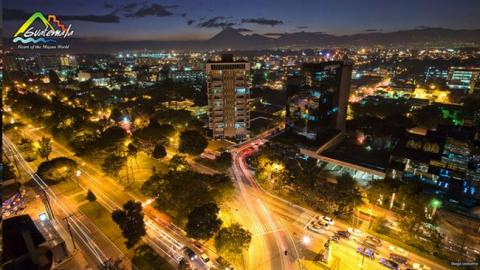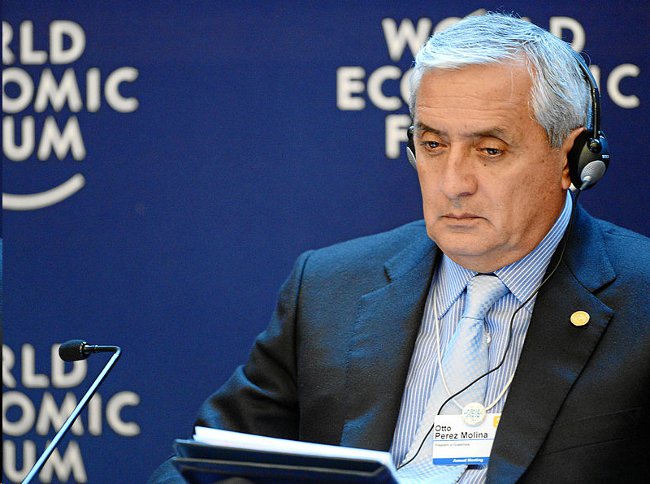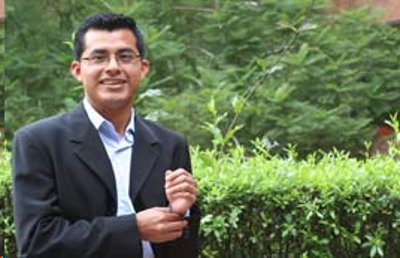New Grassroots Movement Challenges Guatemala’s Old Guard

From our content partner, New America Media:
GUATEMALA CITY – A political party led by young people and indigenous Mayans wants to bring to Guatemala something that it has never seen: American-style democracy.
Nearly two decades after the end of its bloody civil war, the country and its politics remain dominated by a white oligarchy and most political parties are built only to propel those leaders to high office.
But a new party -- comprised largely of young adults and indigenous Mayans -- aims to change that.
The group, which doesn’t yet have a name for itself, is promoting grassroots political organizing, youth civic participation, and indigenous involvement. A formal announcement from the group is expected to come in October.
A former diplomat, 29-year-old Edwin Xol, developed the idea of forming a new political party as an antidote to the shortcomings he saw in Guatemala's political system, taking lessons both from rural Guatemala's indigenous model of governance and American electioneering.
One of Xol’s first steps was to assemble a group of ambitious young professionals who shared his vision. There are currently 40 people on staff, not including candidates, all under the age of 36, and about 40 percent of the membership is made up of indigenous Mayans, a group historically disenfranchised from politics here.
Monica Mansanieros, president of the political science student association at University of San Carlos, has led the efforts to attract Guatemalan students to the cause -- no easy task in a country where corruption in politics has left most youth jaded and wary of promises of change.
But Xol and Mansanieros insist the country is full of aspiring young leaders who are only waiting for an opportunity to delve into public service. Their hope is that the new organization they’re forming will be seen as that opportunity.
"Young people keep waiting, without realizing that maybe the ones who we wait for are ourselves," says Xol.
One trait that sets the new organization apart from Guatemala’s established political parties is a seeming absence of ideology – its leaders insist they do not have a set policy platform. Rather, the cornerstone of their strategy is to build an infrastructure that will connect disparate civic committees that are scattered across the country under one "umbrella," to channel their various ideas to Guatemala City, the nation’s capital.
"It is a process of discovery and innovation," says Xol, "and we have to be open to new ideas."

In that spirit, and quite unusually for Guatemala, the party was not designed to serve a particular leader. Political parties in Guatemala are ephemeral and often exist with the singular focus of propelling a certain individual to the presidency, an affliction that some in Xol's group refer to as "presidentialitis.”
For Xol, the intent is not to pin the nation's hopes on "one good president, but [to create] a system that gives the country the best presidents, the best congressmen, and the best mayors."
In that spirit, the nascent party’s strategy will be to eschew national elections for smaller local races in rural parts of the country, to build a power base. The leadership says it won't even consider entering national candidates for another decade.
In the upcoming 2015 elections, the group plans to introduce mayoral candidates in 10 different municipalities with support from "civic committees" -- grassroots associations that are the basis of local politics in Guatemala's largely Mayan interior. By 2019, they plan to triple their footprint with mayoral candidates in 30 cities and towns, or about 10 percent of Guatemala's municipalities. In 2023, they cautiously expect to have the ability to run candidates for the House of Deputies (Guatemala's lower house of congress) and only after that will they establish a timeframe for launching presidential candidates.

Their strategy to begin small and grow from there -- starting from local civic committees in rural Guatemala and eventually coming to the nation’s capital -- is a first for the country.
With no precedent in their own country, the group has looked north for inspiration. Two of the founding members -- Hugo Novales and Luis Chavez -- are experts on political organizing from the Central American Institute who have studied campaign strategy in United States elections. Specifically, they’ve taken cues from Barack Obama’s 2008 presidential campaign: They’ve developed a strategy for soliciting donations and sharing information via the Internet and social media as a way to better connect with the population. Rather than courting wealthy sponsors as is the standard here, the group puts an emphasis on garnering small donations; and rather than courting older voters, they seek to mobilize youth.
But even if they seek to emulate Obama-style politics, their final aim is not to produce one transformational candidate -- they are looking at the bigger picture.
“What we want to build is an institution that makes sure that our ideas don't go to the grave with us,” says Xol, “but last through time.”
Photos: Guatemala Today (Flickr); World Economic Forum (Wikipedia Commons); New America Media.






























































































































































































































































































































